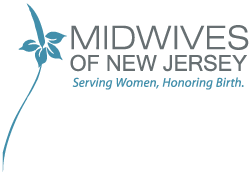The preconception period is an often overlooked part of pregnancy, but it has a strong impact on the lifelong health of your baby. You can’t change your genes, but you can change how they are expressed, and that journey of gene expression begins during the preconception period. It is also the best opportunity for men to influence their child’s biological development.
The health of a man at spermatogenesis is reflected in both the physical quality of sperm cells as well as the epigenetic expression of their genetic material. From initial development to ejaculation, sperm maturation takes between 75-120 days, so focusing on the following three tips is important for at least 3-4 months before conception, although 6-12 months is ideal for best results. Women are born with all their eggs, but similarly to sperm the eggs begin the maturation process about 3 months prior to ovulation, so it is best to start preparing for conception 6-12 months prior as well.
While there are many ways to optimize your health before conception, below are our top 3 recommendations that make the biggest impact on your child’s health.
Top 3 Ways to Optimize Your Preconception Health
1. Healthy Diet
Eating a varied, nutrient-dense diet is one of the most important things you can do for lifelong health. The food we eat is used not only for energy, but it is also what the body uses to heal injuries and regenerate old cells. “You are what you eat” isn’t just an adage, it is true! When our bodies do not get adequate macro or micro-nutrients from our diet, they improvise with the next best option, such as breaking down existing muscles or bone tissue, or by making smaller, subpar cells.
This principle is especially important when planning to conceive. The quality of eggs and sperm are directly affected by diet, so prioritizing nutrition for both parents during the preconception period will also affect the lifelong health of your child. Choosing to eat nutrient dense foods, such as vegetables, fruits, whole grains, and lean proteins, provides the body with the highest quality building blocks to fortify these cells and the resulting child. Starting with the healthiest sperm and egg you can set your child up with a strong health foundation.
2. Eliminate Toxins
Progress is a great thing, and technological advancement has filled our lives with so many wonderful things, but in the wake of advancement is also a heavy toxic burden. Our bodies contain incredible detoxifiers in our liver, kidneys and spleen, all of which keep us functioning in the presence of toxins, but the levels of toxins in our modern world can overwhelm them.
When we encounter more toxins than the liver can excrete, they disrupt the balance of hormones in our bodies. They also affect the expression of our genetic code, and the genetic code within our preconception eggs and sperm. While we can’t rid the world of all toxins, we can limit the ones we bring into our homes. Look at your cleaning products, personal care products, food storage containers, your food and water itself, and see where you can lower the toxic burden for your body. The EWG website is a great resource for identifying dangerous chemicals in household products and finding better alternatives.
Additionally, supporting your body’s natural detoxification systems will alleviate the impact of the toxins we can’t avoid. Exercise is an excellent way to aid your body in detoxifying. The lymphatic system is our body’s “clean-up crew” and the way lymph moves through the body is by muscular movement. Exercise also allows us to sweat and breath heavily, which are also natural detoxification processes. Adding chlorella to your supplements can also support natural detoxification. Chlorella is an algae that helps remove heavy metals, like mercury, lead, or cadmium. These heavy metals accumulate in soft tissues and organs, so chlorella attracts and binds to those metals and facilitates their elimination.
3. Mitigate Health Problems Prior to Conceiving
Any health issues you have prior to conception will be magnified during pregnancy. They also impact the expression of genes within eggs and sperm. Taking care of these common health issues will not only improve your health, but also the health of your baby and their delivery outcomes.
Lose weight – Obesity causes inflammation that can damage the genes in both eggs and sperm. As body fat increases, leptin levels increase, which reduce testosterone production in men, thus affecting sperm production, erectile function, and sex drive. In women, rising leptin levels can disrupt hormone balance and thus the menstrual cycle and ovulation. Additionally, starting a pregnancy overweight increases the risk of several health issues, including preeclampsia, gestational diabetes, fetal macrosomia, and fetal birth defects. You may lose weight just by focusing on eating nutritious foods and avoiding overly processed foods, but meeting with a health coach can help you identify barriers to weight loss and help give you support while losing your eaexcess weight.
Treat thyroid – Thyroid hormones tell the body how to use energy, so abnormal levels of these hormones affect the entire body. Women might have difficulty conceiving with an untreated thyroid issue, but if they do, they also will be at a higher risk for miscarriage. In men, thyroid issues may result in low testosterone and/or low sperm density, mobility, and morphology, all of which can be contributing factors to male infertility. If you have a history of thyroid imbalance or have not had your thyroid checked recently, make sure to have labs checked prior to conception. If you are on medication when you become pregnant, reach out to your prescriber so they can adjust the dosage.
Lower blood pressure – Hypertension in men can damage the testes, increase oxidative stress that affects genes in sperm, and reduce overall sperm quality. In women, hypertension lowers egg quality as well and may affect her ability to get or stay pregnant. Furthermore, during pregnancy, your blood volume doubles, so if you have even slightly elevated blood pressure prior to conception, it is likely to further increase. High blood pressure is the predecessor of pregnancy complications such as preeclampsia, placental abruption, preterm labor, postpartum hemorrhage, and even stroke. In addition to losing weight and diet changes, walking 30 minutes per day and deep breathing exercises can help to lower blood pressure naturally. If you are still struggling to get your blood pressure within normal limits after a few months of lifestyle changes, visit your primary care provider to discuss medication options.
Perfection isn’t the goal, and bad things happen even when we do everything right, so take these recommendations with the notion that something is better than nothing. Making the best choices available can tip the scales in our favor and opens the door for the best outcomes. Additionally, all the above recommendations are good things to consider even outside of the preconception period, so consider adopting new habits gradually to improve your family’s health!
Another thing to consider prior to conceiving your next child is your insurance benefits. The Midwives of New Jersey have made some necessary changes in our financial policies so you may wish to improve your plan or put some extra money in your health savings account in anticipation of increased costs.








 Now Offering Midwifery Care in Guttenberg, NJ – The Midwives of New Jersey
Now Offering Midwifery Care in Guttenberg, NJ – The Midwives of New Jersey
